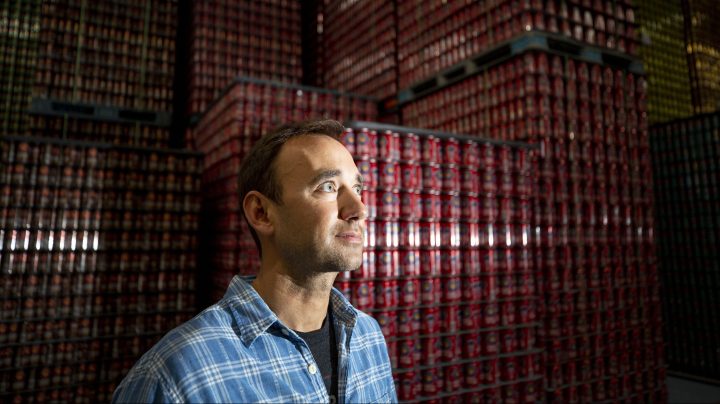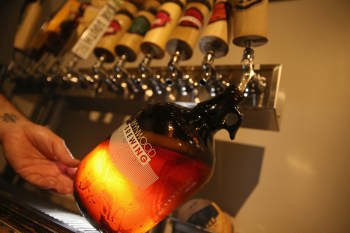
Craft brewers scramble to find aluminum cans

Inside Denver Beer Co.’s main production facility in the city’s Sunnyside neighborhood, pallets full of glistening aluminum cans towered over the operations. For much of the brewery’s history, those cans had arrived in monthly shipments from Ball Corp.’s manufacturing plant not far down the road in Golden.
“Ball has been a great supplier,” said Patrick Crawford, a co-founder of the brewery. “Unfortunately, they no longer want to do business with us.”
The brewery’s latest shipment will likely be its last from Ball. The Colorado-based company told customers that starting this month, it would raise its minimum can order fivefold.
“This environment is making it difficult for us to deliver the quality customer experience our customers expect from Ball,” the company said in a letter to customers that was provided to Marketplace by Crawford.
Ball declined to make representatives available for an interview, but in a written statement the manufacturing giant listed several factors for the change. It said there has been unprecedented demand for cans through the pandemic and that inflation has hit virtually all the materials it uses to make its products.
The new policy increases Ball’s minimum order from one truckload of printed cans — about 200,000 — to five truckloads, or roughly 1 million cans.
That means Denver Beer Co. would need to make a separate order of 1 million cans for each variety of beer it packages, Crawford said, which is too much for the regional brewery.
“It’s basically [Ball] telling us that they don’t want us as a customer,” Crawford said.
Since the policy was announced, Denver Beer and other breweries have had to scramble to find new sources of cans. Bart Watson, chief economist with the Brewers Association, said it estimates that more than 1,000 beverage companies have been affected.
“That includes soft drinks and kombuchas and other things that are in cans,” Watson said.
Can costs have gone up over 30% for some brewers that switched suppliers, Watson said. Many companies have delayed new product releases.
“When brewers are getting these huge cost increases, which aren’t just in cans but across the supply chain, they have a choice to either reduce their margins, which you can only do so far until you’re actually losing money … or pass some of that on to customers,” he said.
Ball said it’s investing more than $1 billion in new can factories in five states to try to meet demand. But the company expects the supply and demand imbalance to last a few years.
Back inside Denver Beer Co.’s distribution site, Patrick Crawford cracked open a can from the assembly line. It’s a raspberry Kolsch called Princess Yum Yum. He said this is the last batch that will go into cans from Ball’s manufacturing plant a few miles down the road.
“Now, we’re buying a can that’s either produced in Wyoming or maybe even Quebec,” Crawford said. “And our shipping costs are gonna go up a lot, which is working a little bit against what we’re trying to do when it comes to sustainability too.”
His company will be able to keep store shelves stocked, though, which he said is the most important thing. But it’ll cost customers. In February, Denver Beer rolled out its largest price increase ever for a six-pack — up $2 from $9.99 to $11.99.
There’s a lot happening in the world. Through it all, Marketplace is here for you.
You rely on Marketplace to break down the world’s events and tell you how it affects you in a fact-based, approachable way. We rely on your financial support to keep making that possible.
Your donation today powers the independent journalism that you rely on. For just $5/month, you can help sustain Marketplace so we can keep reporting on the things that matter to you.

















